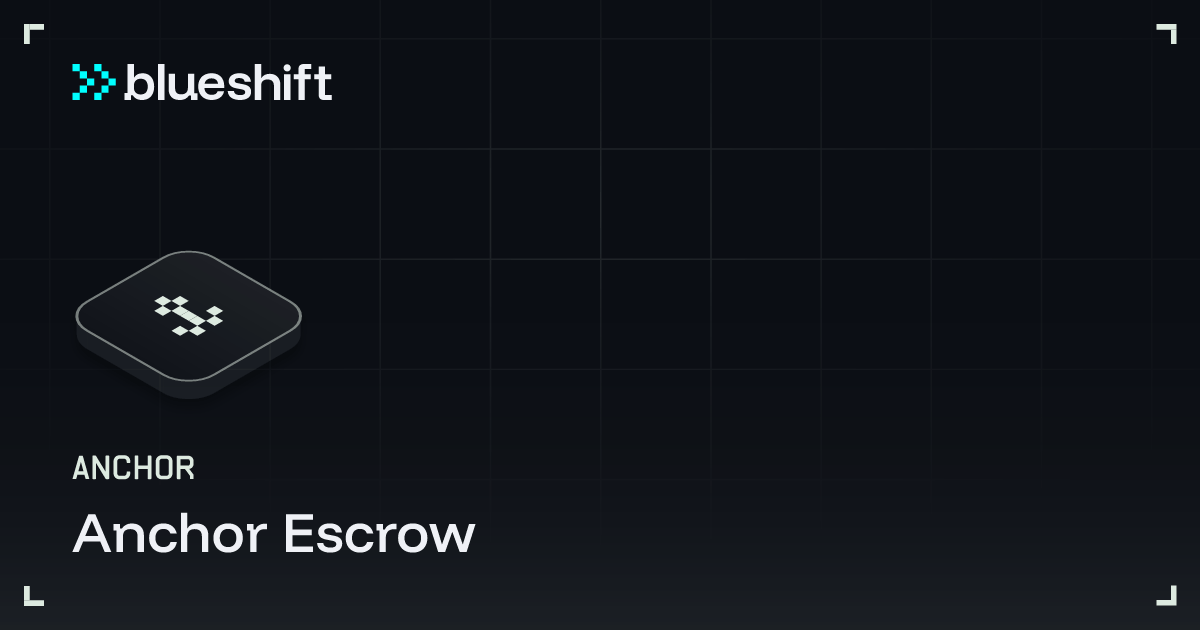
The Escrow
An escrow is a powerful financial tool that enables secure token swaps between two parties.
Think of it as a digital safe deposit box where one user can lock up Token A, waiting for another user to deposit Token B before the swap is completed.
This creates a trustless environment where neither party needs to worry about the other backing out of the deal.
In this challenge, we're going to implement this concept through three simple but powerful instructions:
Make: The maker (first user) defines the trade terms and deposits the agreed amount of Token A into a secure vault. This is like putting your item in the safe deposit box and setting the terms of the exchange.
Take: The taker (second user) accepts the offer by transferring the promised amount of Token B to the maker, and in return, receives the locked Token A. This is the moment when both parties complete their side of the deal.
Refund: If the maker changes their mind or no suitable taker is found, they can cancel the offer and retrieve their Token A. This is like getting your item back from the safe deposit box if the deal falls through.
Note: If you're not familiar with Anchor, you should start by reading the Anchor for Dummies to familiarize with the core concept that we're going to use in this program.
Installation
Let's start by creating a fresh Anchor workspace:
anchor init blueshift_anchor_escrow
cd blueshift_anchor_escrowWe then continue by enabling init-if-needed on the anchor-lang crate and by adding the anchor-spl crate as well:
cargo add anchor-lang --features init-if-needed
cargo add anchor-splSince we're using anchor-spl, we also need to update the programs/blueshift_anchor_escrow/Cargo.toml file to include anchor-spl/idl-build in the idl-build feature.
Open Cargo.toml and you'll see an existing idl-build line that looks like this:
idl-build = ["anchor-lang/idl-build"]Modify it to add anchor-spl/idl-build as well:
idl-build = ["anchor-lang/idl-build", "anchor-spl/idl-build"]You can now open the newly generated folder, and you're ready to start coding!
Template
This time, since the program is quite complex, we're going to split it into small, focused modules instead of cramming everything into the lib.rs.
The folder tree will look roughly like this:
src
├── instructions
│ ├── make.rs
│ ├── mod.rs
│ ├── refund.rs
│ └── take.rs
├── errors.rs
├── lib.rs
└── state.rsWhich the lib.rs will look roughly like this:
use anchor_lang::prelude::*;
mod state;
mod errors;
mod instructions;
use instructions::*;
declare_id!("22222222222222222222222222222222222222222222");
#[program]
pub mod blueshift_anchor_escrow {
use super::*;
#[instruction(discriminator = 0)]
pub fn make(ctx: Context<Make>, seed: u64, receive: u64, amount: u64) -> Result<()> {
//...
}
#[instruction(discriminator = 1)]
pub fn take(ctx: Context<Take>) -> Result<()> {
//...
}
#[instruction(discriminator = 2)]
pub fn refund(ctx: Context<Refund>) -> Result<()> {
//...
}
}As you see, we implemented custom discriminator for the instructions. So make sure to use an anchor version 0.31.0 or newer.
State
We're going to move into the state.rs where all the data for our Escrow lives. To do so we're going to give it a custom discriminator and wrap the struct into the #[account] macro like this:
use anchor_lang::prelude::*;
#[derive(InitSpace)]
#[account(discriminator = 1)]
pub struct Escrow {
pub seed: u64,
pub maker: Pubkey,
pub mint_a: Pubkey,
pub mint_b: Pubkey,
pub receive: u64,
pub bump: u8,
}What each field does:
seed: Random number used during seed derivation so one maker can open multiple escrows with the same token pair; stored on-chain so we can always re-derive the PDA.
maker: The wallet that created the escrow; needed for refunds and to receive payment.
mint_a & mint_b: The SPL mints addresses for the "give" and "get" sides of the swap.
receive: How much of token B the maker wants. (The vault's balance itself shows how much token A was deposited, so we don't store that.)
bump: Cached bump byte; deriving it on the fly costs compute, so we save it once.
We could pack in more info, but extra bytes mean extra rent. Storing only the essentials keeps deposits cheap while still letting the program enforce every rule it needs.
We finish by adding the #[derive(InitSpace)] macro so we don't have to manually calculate the rent of this struct.
Errors
We can now move to the errors.rs file where we're going to add some errors that we're going to use later like this:
use anchor_lang::prelude::*;
#[error_code]
pub enum EscrowError {
#[msg("Invalid amount")]
InvalidAmount,
#[msg("Invalid maker")]
InvalidMaker,
#[msg("Invalid mint a")]
InvalidMintA,
#[msg("Invalid mint b")]
InvalidMintB,
}Each enum maps to a clear, human-readable message that Anchor will surface whenever a constraint or require!() fails.